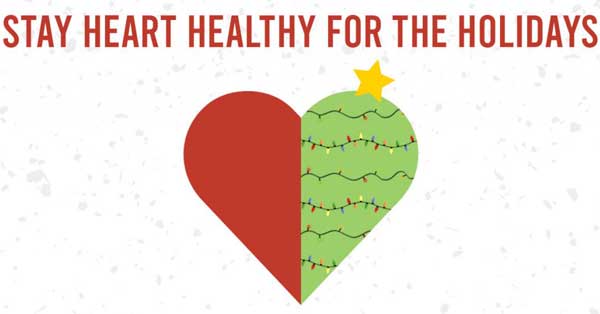The holidays are an exciting time for many families around Minnesota. It’s an opportunity to see family members, exchange gifts, and share meals. However, preparing and caring out all of these activities can be stressful for those coordinating them. This increased stress, as well as other seasonal factors, can put some individuals at an increased risk for a heart attack during the holidays.
The medical journal, Circulation, even defines the winter holiday season as a risk factor for cardiac complications. The Mayo Clinic also indicates that the risk is notably higher on Christmas and New Years Day.
We wish you and your family a healthy and safe holiday – but regardless, it is always a great idea to know the warning signs should you notice them in someone you see over the holidays.
What causes the “holiday heart attack” risk?
The American Heart Association notes that researchers do not know precisely why heart attacks are more common around the holidays, however, they have a few ideas of note:
- Changes in diet and alcohol consumption
- Stress from family interactions
- Strained finances
- Travel and entertaining
- Respiratory problems from burning wood
- Not paying attention to the signs and symptoms of a heart attack
What are the signs of a heart attack?
A heart attack occurs when the flow of blood to the heart is blocked, often by a buildup of fat, cholesterol and other substances. This forms a plaque in the arteries that feed the heart.
Not everyone has symptoms as some individuals enter cardiac arrest suddenly. Most individuals do experience symptoms sometimes weeks or even days before entering cardiac arrest.
The Mayo Clinic sites these common symptoms:
- Pressure, tightness, pain, or a squeezing or aching sensation in your chest or arms that may spread to your neck, jaw, or back
- Nausea, indigestion, heartburn, or abdominal pain
- Shortness of breath
- Cold sweat
- Fatigue
- Lightheadedness or sudden dizziness
What should you do if you think someone is having a heart attack?
Seek emergency help immediately if you believe someone is having a heart attack. The earlier you seek help the better. In the event that a person becomes unconscious while waiting for medical attention, perform CPR immediately.
What can you do to reduce the increased holiday risk?
Heart attack risk can be decreased through lifestyle changes as documented by the CDC. To decrease your risk during the holidays follow these simple tips:
- Don’t let yourself become too stressed – nothing will be perfect
- Eat and drink in moderation
- Don’t miss your medications (if you’re taking any)
- Get plenty of sleep and exercise


